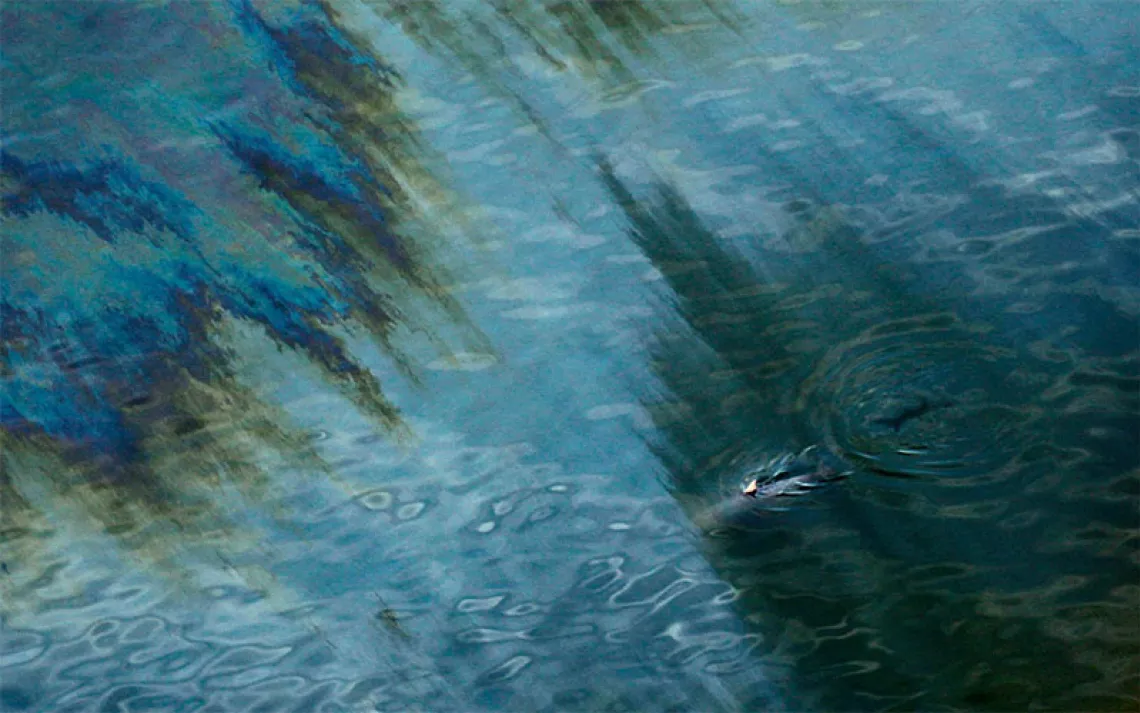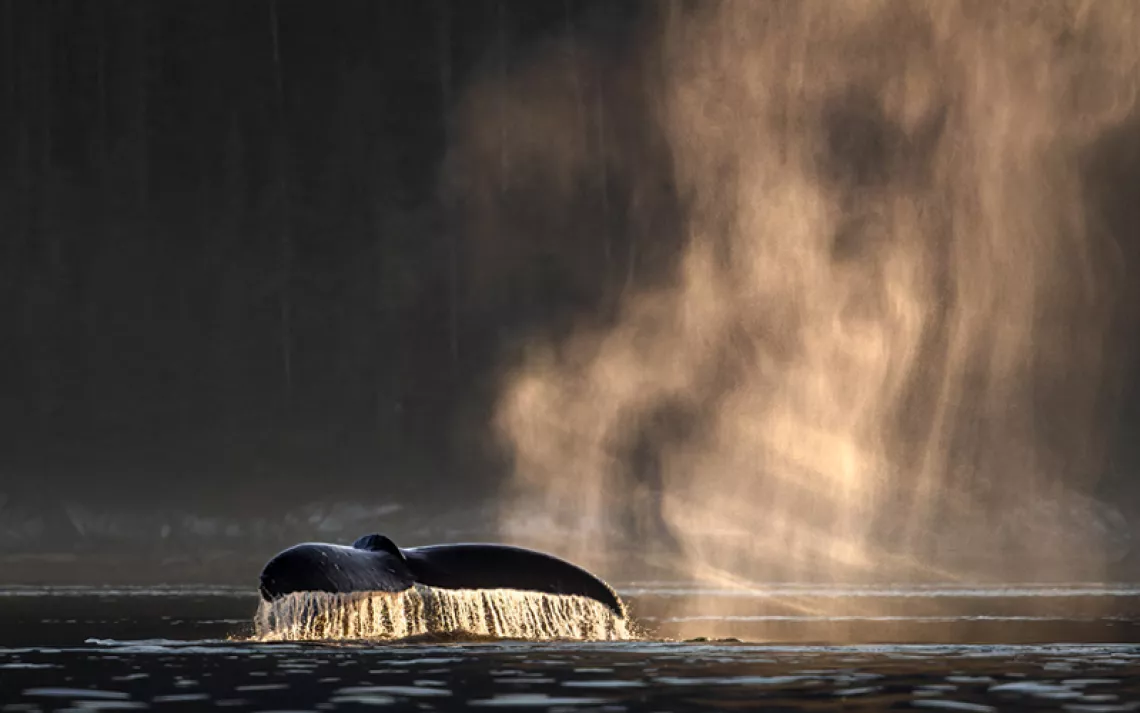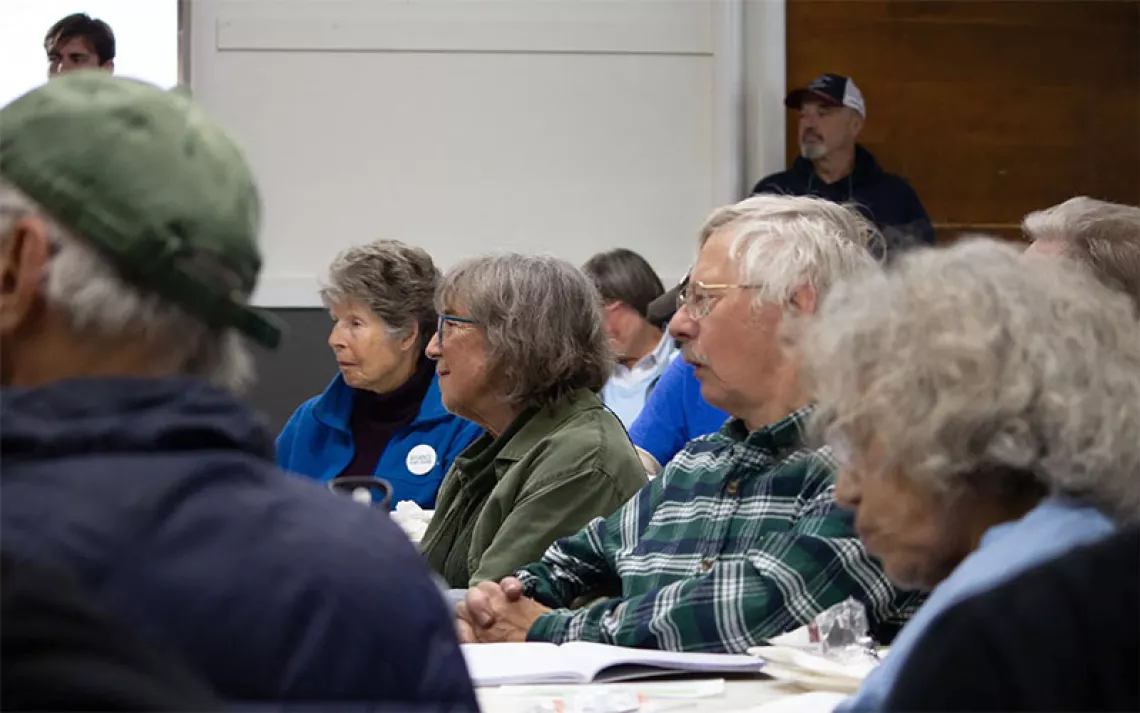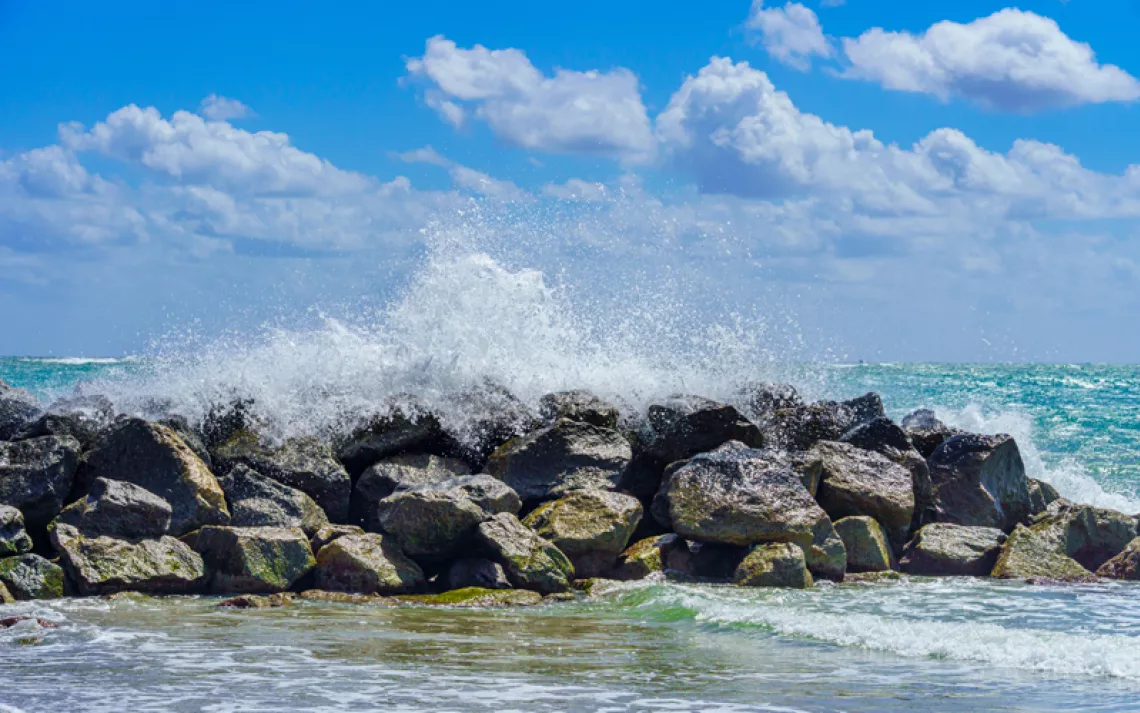Seattle Stopped Sucking—So Can You
Inside the high-profile campaign to keep plastic straws out of our waterways
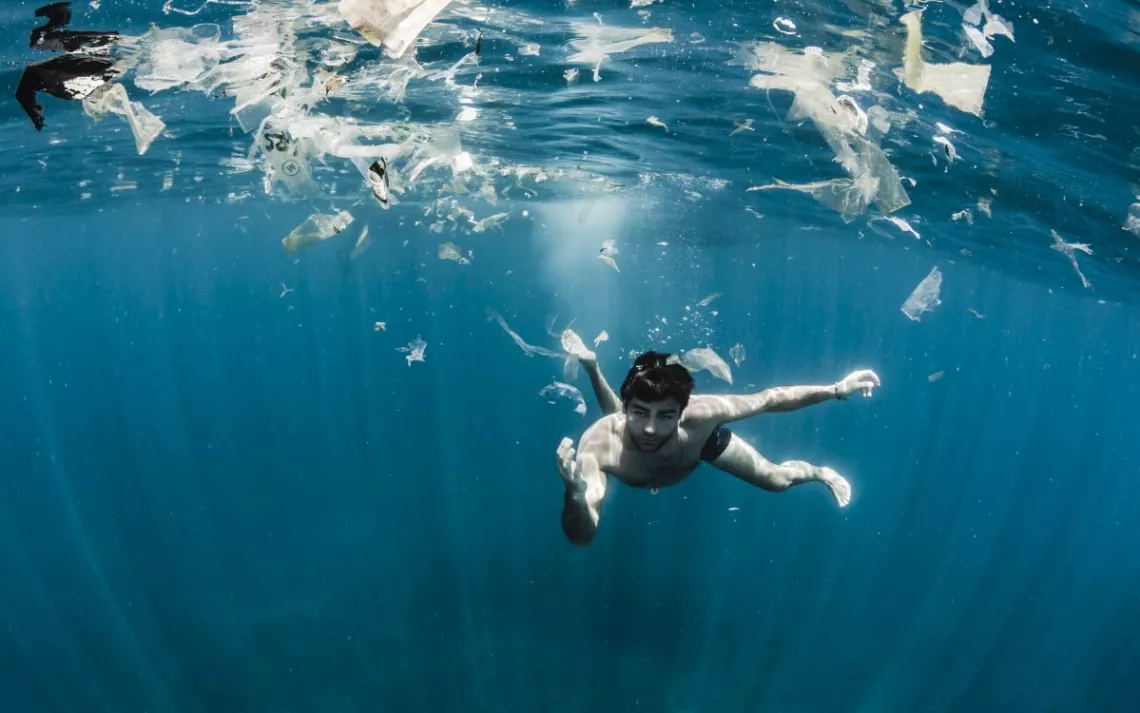
Actor and Lonely Whale Foundation cofounder Adrian Grenier | Photo courtesy of Shawn Heinrichs
Stop sucking. Seriously. Americans use 500 million straws every single day—that’s 1.6 straws per person. At this rate, each American will use a minimum of 38,000 straws between the ages of five and 65. The Lonely Whale Foundation, a nonprofit that serves to promote ocean health, is working to change that.
Lonely Whale’s straw initiative is two-fold: Its #stopsucking campaign is an ever-expanding social media challenge that, since its August launch, has debuted in 30 countries and in more than seven languages. Its other campaign, Strawless, aims to get cities to go plastic-straw-free for an entire month. In September, more than 150 restaurants in Seattle, where the campaign kicked off, agreed to forgo straws, ultimately preventing 2.3 million single-use plastic straws from entering the waste stream. Like many small pieces of trash too often tossed onto the street, used straws often wash into storm drains during rainstorms and end up in rivers and other waterways that connect to our bays and oceans. Dune Ives, executive director of the Lonely Whale Foundation, anticipates that over the next calendar year, the Strawless initiative will keep a minimum of 12 million straws out of waterways.
Ives’s hometown of Seattle was a prime candidate for the campaign’s launch. “There are so many establishments—so many chefs, restaurateurs, and policymakers there—that care deeply about sustainable seafood, that ditching the single-use plastic straw really resonates with them,” she says. “You can’t have sustainable seafood and plastic pollution at the same time. They just can’t coexist.”
While alternatives to standard-issue plastic straws exist, Ives explains that biodegradable plastic ones still aren’t marine-degradable and so, like plastic straws, they break down as microplastics when they enter the marine environment. A common alternative is Aardvark paper straws. However, those still generate waste; plus, not all paper straws are created equal. “There are some that just disintegrate right away, which we don’t advocate for,” Ives says. “We’d rather see stainless steel, bamboo, or even glass straws.”
For all businesses, the Lonely Whale Foundation champions an on-demand policy, wherein stores provide straws to customers only in the event that they request them. When establishments do so, Ives says, straw usage decreases by a cost-cutting 50 to 90 percent. “What they’re finding is that people are not bothered by the paper straw, or by having to ask for a straw,” Ives says. “Most people are not going to ask for a straw if they’re not presented with one.”
Throughout September, the Lonely Whale Foundation promoted strawlessness in Seattle via a press conference, launch party, a Seattle Mariners game during which actor and Lonely Whale cofounder Adrian Grenier threw the first pitch, and a PSA/contest to determine which celebrity athlete was “stealing all the straws in Seattle.” (An end-of-month campaign celebration revealed Russell Wilson, the Seattle Seahawks’ quarterback, as the high-profile straw pilferer.)
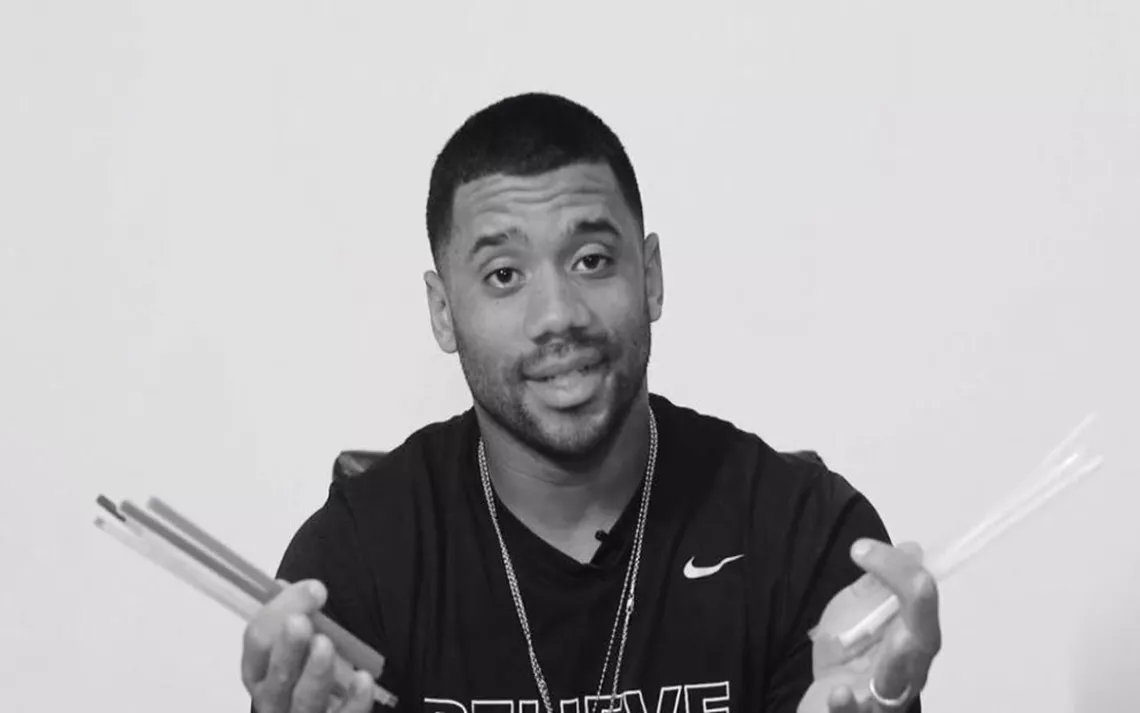
Russell Wilson, Seattle Seahawks quarterback | Photo courtesy of West2East Empire
The campaign is no simple endeavor. Among those partnering with Lonely Whale is CenturyLink Field, Seattle’s professional football and soccer stadium. “Seahawks have 75,000 to 78,000 fans per game, and if you can reach them through a straw, to start a conversation about single-use plastics, then there’s the potential for us to transition into a much deeper and much broader conversation,” Ives says.
Lonely Whale also worked with Seattle port commissioner Fred Felleman to get airport concessionaires to adopt either a marine-friendly alternative straw, or an on-demand policy. “It was a surprisingly easy conversation to have with him,” Ives says, “I think because we have this ethos in the Pacific Northwest about the importance of creating a healthy marine ecosystem. We look at it every day in Seattle.”
In the coming year, Strawless is looking to expand to 10 more cities. Candidates include Auckland, New Zealand; Dublin, Ireland; Hong Kong; Reykjavik, Iceland; and more. “We have 19 cities that we’ve identified and feel like we could make a significant impact in,” Ives says. “We’re narrowing that down to where we know we have strong NGO partners and strong leadership from policymakers, and where we know that we could convert some establishments to an on-demand policy and a marine-degradable alternative.” The foundation is letting citizens vote on future strawless cities for the next few weeks, via an online poll.
Unlike Seattle, some cities listed on the ballot are nowhere near an ocean. “We don’t just want to be a coastal campaign. We want to convey that cities like Toledo, Ohio, that are on major inland waterways, ultimately affect our oceans, too,” Ives says. “Every city is going to have a different formula. We need to understand a city’s conditions to determine what will help us make a difference, and work through local NGOs to make sure that we’re helping to amplify their efforts.”
Regardless of whether Lonely Whale’s Strawless campaign is headed your city’s way, there are a number of ways that you can join the pod and help mitigate the scourge of the straw. Vote for the city you want the Strawless campaign to take over next, challenge your friends and family to #stopsucking, and/or request that your local venues adopt an on-demand policy. (Let them know that they can contact the Lonely Whale Foundation for free samples of straw alternatives.) Who knows? Adrian Grenier could end up throwing a pitch—or taking a strawless sip—in your hometown.
 The Magazine of The Sierra Club
The Magazine of The Sierra Club
